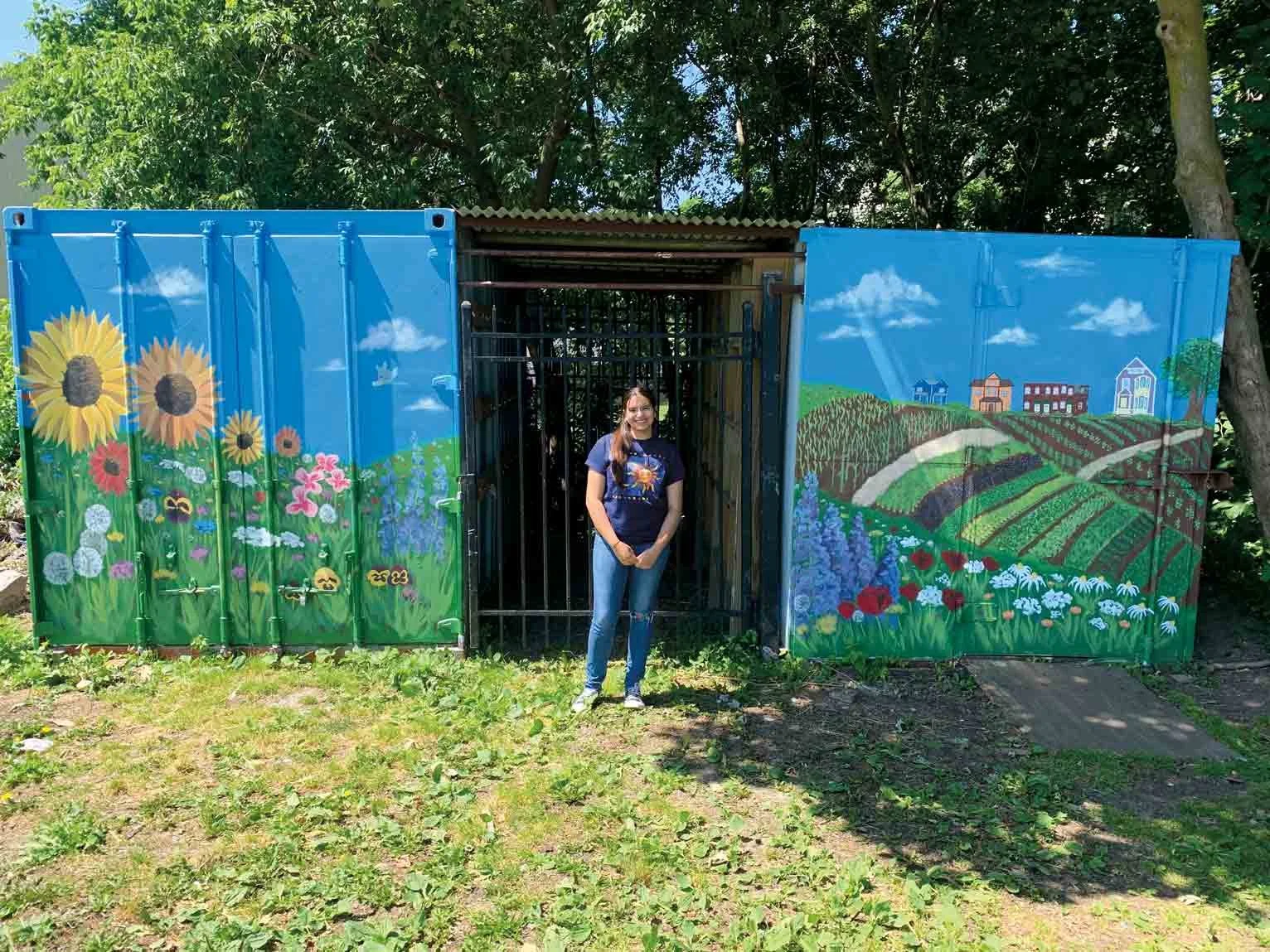Farm Improvements
Wenham Farm
This was a transformational year at the 25-acre Reynolds Farm in Wenham, where The Food Project has been farming since 2014. We secured funding for some major improvements, namely a well for irrigation, electricity to help charge our brand new, state-of-the-art electric tractor and walk-in cooler, a large wooden pavilion for gatherings, a produce washing station, and a new farm truck. The Reynolds Farm is now more sustainable, energy efficient, and safer for our farmers and the planet.
“It was important for us to modernize our operations and equipment to enable us to better care for the land and our employees,” tanamá varas, Wenham Farm Manager, said. “When we are able to grow more for the community in a sustainable way with less input and more amenities for our seasonal farmers and youth crews, we are truly living our mission to improve local food systems across the region.”
After power lines were connected to the farm, we purchased an electric tractor, which cuts down on energy costs and protects our farm staff and youth from diesel fumes. Our new tractor runs extremely quietly. That means that we can continue to explore new tilling methods to foster nutrient growth, while fully enjoying the natural sounds of the farm.
Having an electric power source paved the way for a new walk-in cooler, which we will use to store fruits and vegetables after harvesting. We’ve also added additional charging stations which will make it easier to plug in multiple electric tools.
We built two new gathering spaces on the farm, including a shady pavilion where youth can rest and we can host events. Also, a covered station to wash and weigh produce before it is transported to Lynn for the farmers market or distributed to community partners. Finally, our new Toyota Tundra will make transporting our produce around the North Shore a safer and more pleasant experience for youth and staff. The old truck had seen better days!
We will continue to grow and improve the Reynolds Farm. We’ll be partnering with a local sheep farmer to bring some of his herd to graze. This will help to improve long-term soil health and create opportunities for our youth crews to learn about other aspects of the agricultural system. We will also be planting a one-acre orchard with a mix of apple, pear, peach, and pawpaw trees for community picking. If you are in Wenham, stop by to see these new additions to the farm up close!
“It was important for us to modernize our operations and equipment to enable us to better care for the land and our employees. ”
West Cottage Farm
With a grant from the City of Boston, we were able to make some needed improvements at our West Cottage Farm.
To better provide free compost to residents interested in food gardening, local school groups, community organizations, and other small farming enterprises, we designed and built a multi-bin composting facility. The new structure supports up to six individuals simultaneously in the space and dramatically increases the farm’s capacity to cultivate and distribute fresh compost to the community.
The site now has a new produce wash station. Staff used to transport produce off-site for washing and processing, but now the process is more efficient and food safety is increased by washing root vegetables and peppers as soon as they are harvested.
“I really enjoy working with everyone at The Food Project. We work well together, and we get it done. There are always many projects to do and this one was a lot of fun,” says Donald Henry, a longtime Dudley neighborhood resident and go-to handyman for our Boston farms who helped build the wash station.
Several diseased trees have also been removed from the property. Meanwhile, fifteen native, flowering plant species were planted along the fence line on Brook Avenue to add beauty and a pollinator habitat.
In addition to growing produce and distributing compost, the West Cottage Farm serves as a vibrant, green, community gathering space in an otherwise dense urban area. To increase and enhance the visibility of the farm as a public space open to residents and visitors, we enlisted Artistry Murals, a talented group of our alumni, to paint a mural on the storage shed.
“I first worked with The Food Project in the summer of 2019 and loved every moment of it. I became a part of a community and felt I was actually making a difference,” says Jeylyn Simono. “What TFP represents is admirable and plays a significant role for BIPOC youth and community members of the Boston area. This is why I reached out when I noticed an older mural peeling. I wanted to contribute in any way I could.”
The mural is influenced by our Boston base and depicts farmland, with flowers in the forefront and a bright sky above. Specifically, the flowers are representative of the beautiful ones grown on the perimeter of the farm each spring and summer.
“My hope is that this mural represents the life and beauty of the farm and harmonizes with the land when it is most lively, while also standing out during the offseason, even when it is not at its peak.”




